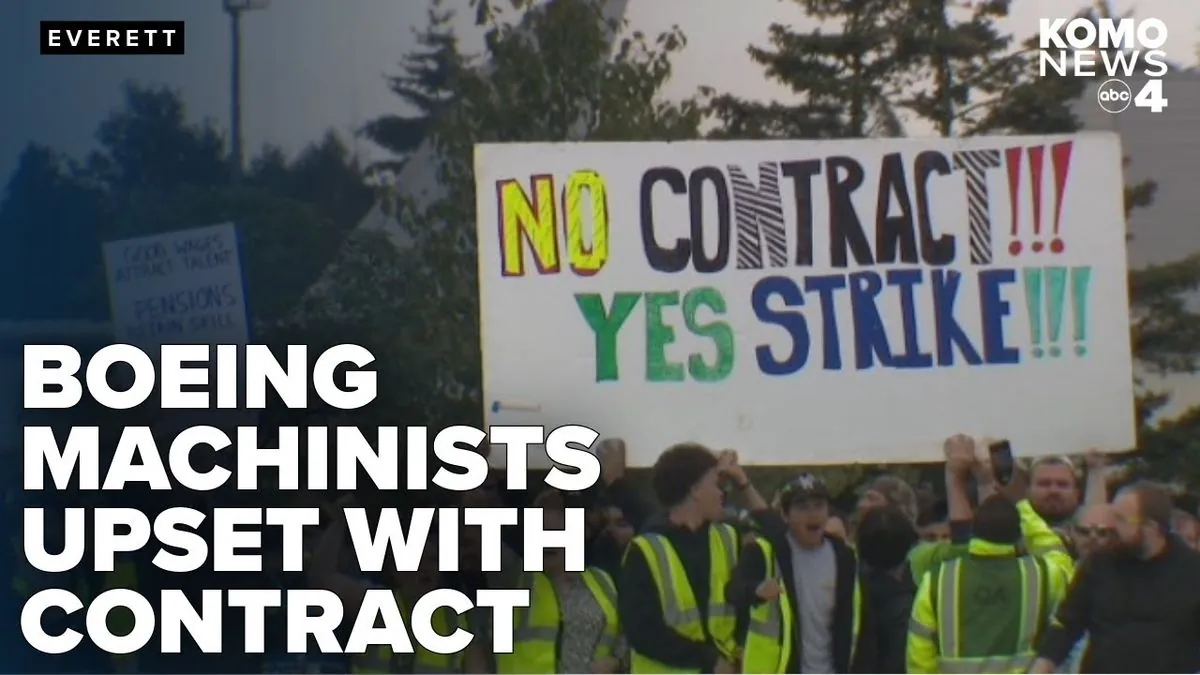Boeing faces a significant challenge as tens of thousands of machinists initiated a strike on September 13, 2024, after rejecting a proposed contract that offered substantial pay and benefit increases. The International Association of Machinists and Aerospace Workers District 751 (IAM) members voted overwhelmingly in favor of the walkout, with 96% supporting the action.
This labor dispute comes at a critical time for Boeing, which has been grappling with various crises over the past year. The company, founded in 1916 by William Boeing, has been a cornerstone of the aerospace industry for over a century. However, recent safety issues, financial setbacks, and legal challenges have put the manufacturer under intense scrutiny.
The rejected contract included a 25% pay increase over four years and enhanced health and retirement benefits. Despite these offerings, workers expressed dissatisfaction with overtime rules and compensation, citing past concessions and a desire for more substantial improvements.
"Members would probably reject the deal."
The strike's impact on Boeing could be severe, with analysts estimating potential losses of $1 billion per week. This work stoppage primarily affects the company's assembly plants in Washington state, particularly in Everett and Renton. These facilities play crucial roles in producing some of Boeing's best-selling aircraft, including the 737, which holds the title of the best-selling commercial jet airliner in history.
Boeing's new CEO, Kelly Ortberg, who assumed the position in August 2024, attempted to salvage the deal by appealing to employees. However, his efforts were unsuccessful in preventing the strike. This labor dispute adds to the company's ongoing challenges, which include:
- Safety concerns following a door panel incident on a 737 Max in January 2024
- Legal issues related to past crashes of Boeing Max jets
- Setbacks in the Starliner space program
The aerospace giant's workforce, numbering over 140,000 employees worldwide as of 2023, has a history of labor disputes. Significant strikes have occurred in 1948, 1965, 1977, 1989, 1995, 2000, and 2008, with the last major walkout lasting 57 days and costing the company an estimated $1.5 billion per month.
As Boeing navigates this latest crisis, it must also contend with fierce competition from rivals like Airbus in the commercial aircraft market. The company's ability to resolve this labor dispute quickly and effectively will be crucial in maintaining its position as a leading manufacturer of commercial jetliners and defense systems.
